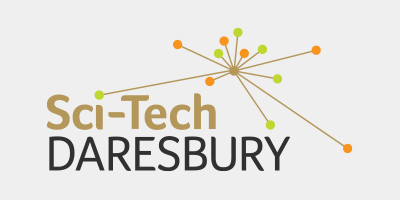May 21, 2019
New human cell technology will advance our understanding of disease and new drug development
A revolutionary 3D cell culture technology, developed in the UK, will speed up the laboratory testing process for testing new drugs and understanding diseases, whilst reducing the reliance on animal testing.

Biotech start-up Revivocell, based at STFC’s Daresbury Laboratory, has launched a tool, called CELLBLOKS, for use by researchers and drug development companies that can closely mimic body-like conditions for any organ in the body, as well as the environment of living human tissues, which can then be examined at the molecular level.
This technology can be used, for example, to better predict the effect of new drugs on the human body and identify potential issues early in the drug development process, such as drug-induced liver injury. Cells can be grown in a way that they can simulate the interactive nature of biological barriers, such as the intestinal epithelial layer and the blood brain barrier, and can also be grown for systematic circulation.
This technology is superior to conventional 2D cell culture processes which, although they have played a vital role in many important life science discoveries, can be limiting as they are grown in isolation and therefore do not represent the true interactive nature of human tissues.
A spin-out of Lancaster university, Revivocell is one of a growing number of healthcare companies to be taking advantage of the world-class R&D facilities for start-ups and SMEs at STFC’s Daresbury Laboratory, located at Sci-Tech Daresbury in the Liverpool City Region, in their mission to develop and commercialise new and cutting edge healthcare technologies.
Dr Valon Llabjani, Revivocell CEO said: “We’re thrilled to be launching CELLBLOKS, which provides a versatile and customisable solution for researchers setting up their own unique interactive cell studies, with multiple experiments in one platform. Locating our business within Daresbury Laboratory’s business incubation facilities is giving us vital access to a technologically sophisticated research environment and expertise, alongside office space within which we can operate on a day-to-day basis. This, in combination with the on-site business support, is particularly valuable as we move into the commercialisation stage for our technology.”
Delyth Edwards, business incubation programmes manager at STFC, said: “Turning a new, innovative idea into a viable commercial reality is a massive challenge for a small company, so I’m thrilled that Daresbury Laboratory is providing the right environment and support for Revivocell to do this. Revivocell is a superb example of how, with the right facilities and support, small businesses can develop world-changing new products and services that can be applied to the benefit of both society and the UK economy.”



